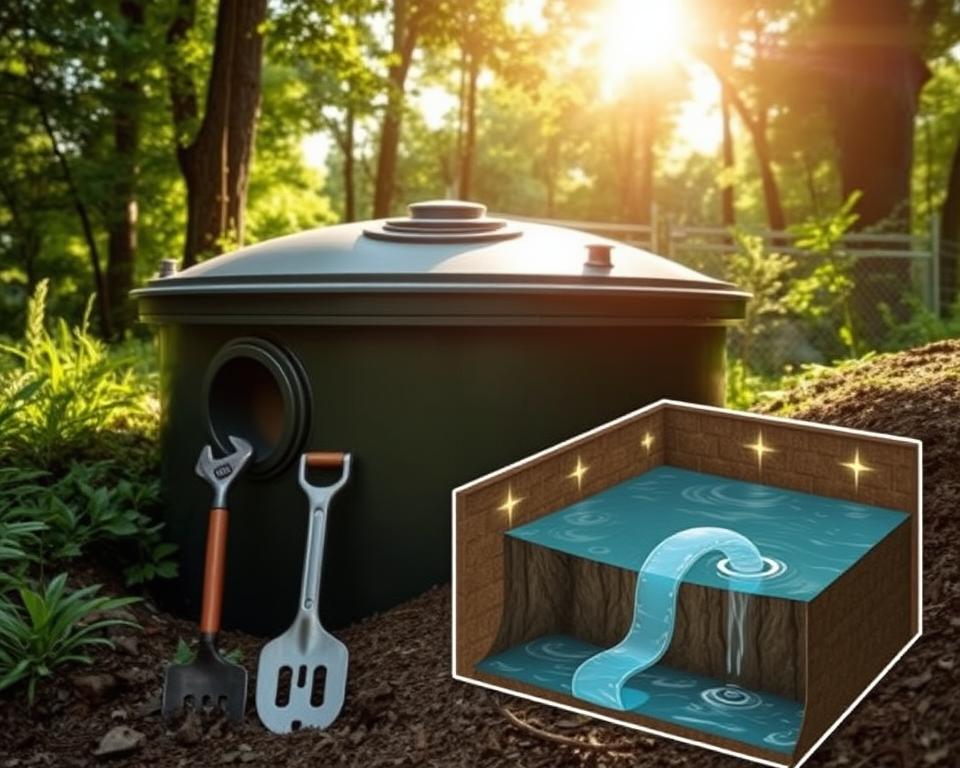Septic System Servicing
Do you ever pondered regarding the ramifications of overlooking septic system upkeep? For homeowners relying on these systems for sewage handling, missing regular care can lead to hefty bills. It also creates risks to both health and the surroundings. Pumping your septic system is far from a quick task; it’s vital for making sure your household operates reliably. By routinely emptying your septic tank, you halt sludge collection and extend the longevity of your setup. This forward‑looking approach lets you avoid any troublesome scenarios. Discover the value of septic tank care and the process required with septic tank pump out.
Critical Points
- Regular septic system servicing is essential for avoiding expensive repairs.
- Neglecting cleaning can cause dangerous conditions for your loved ones.
- Understanding your septic system assists in effective stewardship.
- Symptoms of a malfunctioning septic system should be noticed quickly.
- Expert services can support in preserving peak tank health.
Comprehending Your Septic System
A septic system is an effective on‑property solution for processing wastewater. It mainly consists of two sections: the septic tank and the leachfield. Both are integral for ensuring safe treatment and safeguarding the environment.
The septic tank gathers wastewater from your home. In it, solid particles drop to the bottom, and liquids float to the surface. Naturally occurring bacteria within the tank decompose the biomatter, making the effluent easier to handle. This partially treated wastewater then travels to the drainfield for further purification by the earth, finishing the treatment.
It’s crucial for homeowners to understand the dynamics of their septic system. Learning how the septic tank and field operate together can result in enhanced system care. This understanding encourages proper maintenance methods, helping guarantee the system’s robustness.

Value of Regular Septic System Cleaning
Consistent servicing of the septic system is key for domestic and environmental health. If ignored, raw wastewater can leak into your yard. This spillage might lead to groundwater contamination, posing health risks. By keeping the septic system clean, you shield your loved ones and the community.
It’s advised to clean the septic system every three‑to‑five years, based on how much you use it. Such maintenance is not just eco‑friendly; it prevents expensive repairs. A septic system that’s well‑maintained works more efficiently, delivering a cleaner home environment and a cleaner environment.
Indicators Your Septic Tank Needs Service
Homeowners need to recognize signs that their septic tank may need cleaning. Key indicators to monitor are:
- Delayed drainage in sinks, bathtubs, and lavatories
- Bad smells near the drainfield
- Sewage backups in interior drains
- Extended wet areas or extra‑green patches of grass over the septic system
It’s important to spot these symptoms promptly to avert serious septic tank problems. Regular inspections are key. They detect issues before they become pricey fixes. Inspecting your system periodically confirms it functions well and lasts longer.
Staying alert and responding quickly are crucial for septic system care. By monitoring these alerts, you can keep your septic system in optimal health.
Septic System Pumping Intervals
Pumping your septic system consistently is key to maintaining your home’s plumbing in excellent condition. Professionals typically suggest servicing the septic tank every three to five years. However, this can differ depending on the number of your household, how much water is consumed, and the volume of your tank.
If you have a big household that consumes more water, you may require to service the system at shorter intervals. Tracking your water use can help you figure out if you need to revise your service schedule.
All in Sanitation recommends setting up a consistent pumping schedule that matches your household’s unique needs. Adhering to a set maintenance program keeps your septic system functioning efficiently and sidesteps expensive repairs.
Septic System Cleaning: Top Tips
For a septic system to keep healthy, homeowners must practice key practices. It’s essential not to send down items that won’t break down; doing so stops obstructions and maintains the system running smoothly. Similarly, minimizing harsh chemicals keeps the essential bacterial population. These measures are critical for the system’s life span and effectiveness.
Being proactive with regular inspections is crucial. Setting up regular inspections can catch issues early, enabling swift solutions. Additionally, saving water through repairing drips and careful usage aids septic tank health. These measures guarantee the system functions efficiently for decades.
It’s also important not to drive on the leachfield. Leaving this area unobstructed allows it adequately handle waste water, safeguarding your system from issues. Following advice from professionals like All in Sanitation also improves septic system care.
The Process of Septic Tank Pumping
For homeowners, grasping the septic system cleaning process is important. A licensed septic pumper should perform routine septic tank pumping to keep your system operating properly. The first step is checking the tank’s condition to determine when it is due for pumping.
A septic tank demands pumping once the solids occupy about a third to half of its capacity. The licensed septic pumper will then remove these deposits. This step maintains the system’s performance. Furthermore, the visit may entail examining the tank for potential issues, facilitating immediate fixes.
Keeping a journal of each pumping session is wise. This log enables you to track their septic system’s upkeep, and is helpful if selling the property. Adequate septic system maintenance boosts its longevity and performance, preventing expensive fixes later on.
Septic Tank Inspection: What to Examine
Routine inspections are crucial for your septic system’s well‑being. Using a detailed septic tank inspection checklist can uncover latent issues early. Inspections should be carried out by a qualified technician every one to two years. They will gauge solid depth and the scum thickness during this visit.
Inspecting the inlet and outlet baffles and filters is also vital. These elements are key for your septic system’s efficient performance. Detecting drips or failures promptly can avoid large repair costs. Preventive actions, like using an inspection checklist, extend your system’s durability and effectiveness.
Expert Septic System Services
Using expert septic system services is essential for your septic system’s health. By selecting a company like All in Sanitation, you ensure that experts take care of the pumping, inspections, and fixes meticulously. Accredited technicians have special know‑how, enabling homeowners to keep the system’s peak functionality for decades.
Upkeep by licensed experts lowers the likelihood of sudden failures and costly repairs. These services feature detailed inspections that assess the system’s status, locating possible problems early. Maintaining this forward‑looking posture significantly prolongs your septic system’s service years.
In the end, entrusting your septic system to licensed professionals offers confidence. Collaborating with companies such as All in Sanitation taps into their experience. It guarantees the wellbeing of your tank, building assurance in its maintenance.
Septic System Maintenance Tips for Homeowners
Homeowners have the capacity to ensure their septic systems functioning reliably. Using efficient care tips significantly improves their function. Introducing straightforward changes to water usage, like cutting down on extra use and spreading the use of appliances, reduces strain on the system.
Fitting water‑saving faucets in your restrooms and kitchens noticeably supports septic longevity. These fixtures cut down water use without hurting functionality. Not using garbage disposals is prudent too, as they produce more solids in the system, requiring increased upkeep.
Routine inspections and following a thorough maintenance routine will prolong your septic system’s service. Paying attention of everything that goes down your drains is crucial for preserving a healthy septic environment. By embracing these measures, you’ll immensely support your septic system’s operation and longevity.
Common Septic System Repairs
Septic systems may experience various issues over time, requiring repairs. Typical concerns include leaks, damaged baffles, and percolation troubles in the absorption area. By spotting the symptoms at an early stage, homeowners can tackle them quickly, keeping their system stays in sound condition.
Standard repairs involve:
- Changing out damaged parts to re‑establish system integrity
- Repairing or replacing cracked conduits to avoid leaks
- Removing obstructions from clogged lines to ensure proper drainage
Fixing septic issues swiftly not only lowers expenses over time but also lengthens the system’s service years. Scheduled check‑ups and maintenance can avoid these problems, aiding in the care of a healthy septic system.
In Closing
Preserving your septic system robust is key to ecological and personal well‑being. Routine pumpings and check‑ups prevent costly fixes and health risks. Acting early with septic care saves time and lowers concern.
Employing professionals like All in Sanitation guarantees high‑quality upkeep tailored for your system. Their experience assists catch issues early, avoiding major troubles and emphasizing the need for regular inspections.
Following sound methods for septic maintenance delivers long‑term system efficiency. A small amount of maintenance now ensures a more reliable septic system in the long run.
